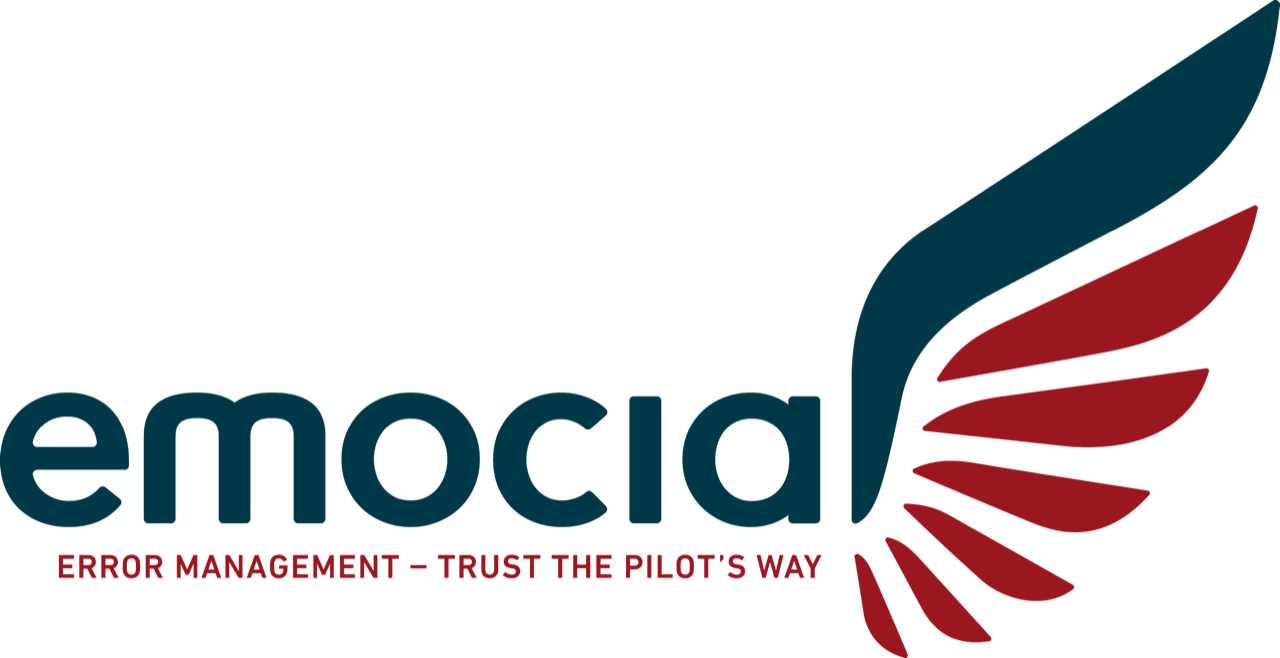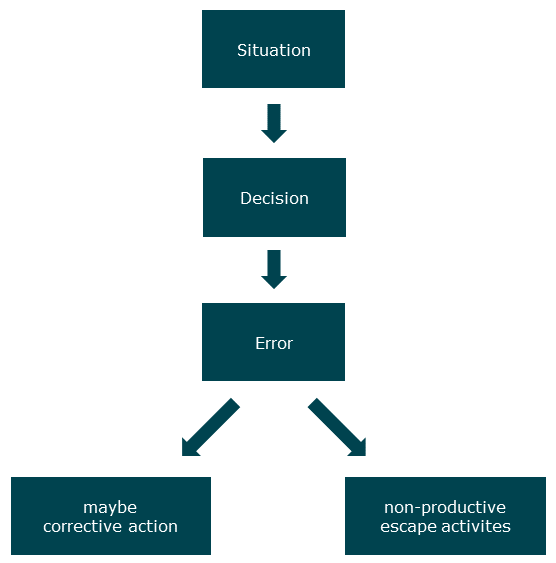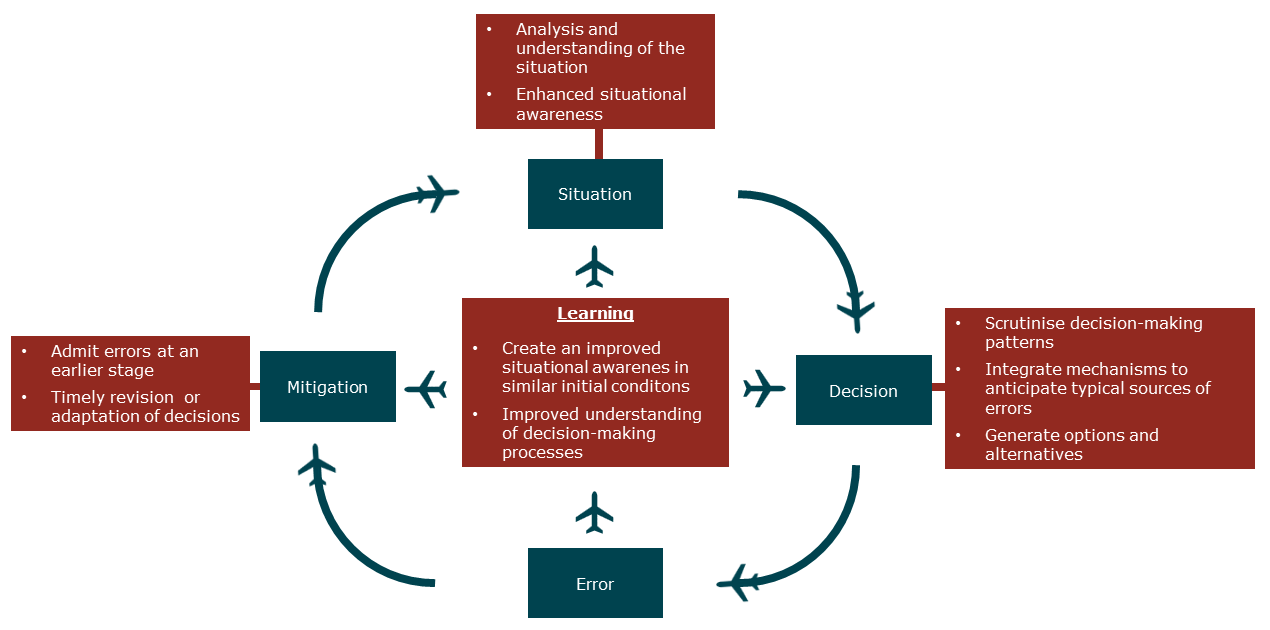emocia-Model
emocia’s holistic approach
Often, the classic process for dealing with decisions and undesired results, the errors, looks like this:
A decision is made based upon a given situation. Often, the situation is not interpreted correctly or not understood in crucial, essential points. The decision, based on incomplete situational awareness, results in an undesirable outcome, the error. How the error is dealt with usually depends on its impact. Either an attempt is made to bring about a change by means of corrective actions (still without improvements in the area of situation awareness). Alternatively, the undesired result is accepted and an attempt is made to mitigate its effects through non-productive escape activities in order to avoid possible consequences for the decision-maker.
In such a process, the occurrence of errors and their consequences are often not questioned directly and deeply. A learning culture is hardly present.
This is exactly where the emocia model comes in:
From a person-centred to a systemic perspective
This holistic approach supports the process at various key points and leads to continuous learning from errors in the sense of a closed loop. The process favoured by emocia is about both reducing the number of errors, minimising their impact and enabling continuous learning.
Situation
emocia aims at multiple levels. At the “situation” level, a broader understanding and deeper analysis of the situation in order to create an enhanced situational awareness and thus the basis for resilient decisions are fostered. Prerequisites are the decision-makers’ knowledge of the processual nature and the sum of human factors, team processes and aspects of the organisational culture.
Decision
At the “decision” level, decision-making patterns are scrutinised and typical sources of error are highlighted in order to learn from past decisions for future decision-making processes. This helps to reduce the number of errors and thus their impact. The focus is on factors such as agility within the team, leadership and error culture, decision-making systems and empowerment.
Mitigation
In order to avoid unplanned corrective actions or unproductive avoidance actions, emocia also focuses on how errors are dealt with. In addition, the introduction of anticipation mechanisms takes place at the “mitigation” level. Thus, additional options and alternative actions can already be worked out during the decision-making process, which can then be used in a controlled manner if necessary. In a non-punitive error culture, errors are recognised and accepted at an early stage and countermeasures can be taken without fear of sanctions.
Learning
Finally, at the “learning” level, the goal of a learning organisation is worked towards. This serves the superordinate purpose of establishing and implementing a Just Culture with Psychological Safety in the organisation – by focusing on the question “why and how did the error happen” (or not), instead of solely focusing on responsibilities (“who”). The entire error and decision chain is analysed. This approach helps laying the foundation for a better situational awareness in future similar situations and also has an effect on an improved understanding of the decision-making processes. Moreover, based on evidence it simultaneously strengthens the resilience and efficiency of the organisation and the decision-makers in dealing with errors.
…if you think error management is too costly, try an incident!
What emocia can achieve for your organisation
Modern organisational structures, transformation to a learning and agile Just Culture organisation, satisfied employees, quality improvements, elimination of friction losses
More efficient processes through understanding the fundamentals of human action in different situations
Successful, dynamic, agile and productive leadership teams with a common focus
Inventory of strengths and development potentials in your organisation’s structure with regard to organisational and error culture
Further development of leaders and raising of previously unused potentials, confidential and trustworthy support with independent third-party opinion in a challenging VUCA/BANI environment
Confidential, external product solutions for error management in a Just Culture organisation







